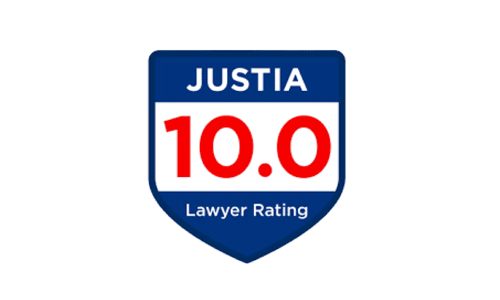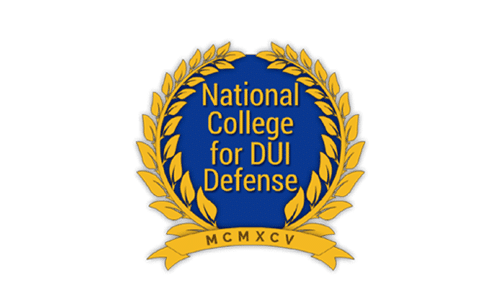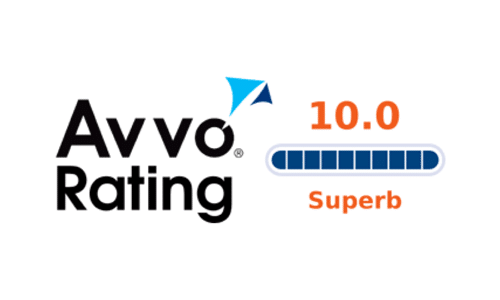Nave News
What is the Difference Between a DWI and a DWAI?
First, let’s start with the acronyms. “DWI” stands for Driving While Intoxicated, while “DWAI” stands for Driving While Ability Impaired. There are essential differences between these charges, which you should know and understand if you have been charged.
Generally speaking, any impaired driving charge requires the prosecution to prove four (4) elements beyond a reasonable doubt: (1) operation, (2) of a motor vehicle, (3) on a public highway in the State of New York (4) while in an intoxicated or impaired condition
Driving While Intoxicated:
There are two types of “DWI” in New York. The first is DWI common law, violating New York State Vehicle and Traffic Law § 1192(3). Specifically, the law states that “No person shall operate a motor vehicle while in an intoxicated condition.”
However, DWI common law requires no determination of your blood alcohol content being above the accepted legal limit of .08%. In other words, you can be charged with DWI common law without providing any breath or blood sample to law enforcement that shows your blood alcohol content being .08% or higher. Rather, DWI common law is premised on other clues and indications of intoxication shown to the arresting officer. Typically, these include whether the officer has detected the odor of an alcoholic beverage emanating from your breath, the exhibition of bloodshot or watery eyes, any admission to drinking previously, and whether you have completed standardized field sobriety tests administered by the officer.
This is in stark contrast to the second type of DWI in New York – DWI Per Se. DWI Per Se, in violation of New York State Vehicle and Traffic Law § 1192(2), is where the analysis of whether your blood alcohol content is above .08% comes into play. As the law states, “No person shall operate a motor vehicle while such person has .08 of one per centum or more by weight of alcohol in the person’s blood as shown by chemical analysis of such person’s blood, breath, urine or saliva…”
While DWI common law requires no determination of your blood alcohol content being above the accepted legal limit of .08%, you cannot be charged with DWI Per Se unless the arresting officer has evidence to prove your blood alcohol content is above .08%. While the arresting officer can still use the above-mentioned clues and indications of intoxication in determining whether to make an arrest, ultimately, it is a blood or breath sample provided to law enforcement that is necessary for a charge of DWI Per Se.
Regardless of whether you have been charged with DWI common law or DWI Per Se, both charges carry the same possible legal consequences and penalties. Both DWI common law and DWI Per Se are unclassified misdemeanors, which include up to 364 days in jail, three (3) years’ probation, six (6) month revocation of your driver’s license, mandatory installation of an ignition interlock device in any vehicle you own or operate, mandatory completion of the Impaired Driver Program through the New York State Department of Motor Vehicles, mandatory attendance at a Victim Impact Panel, and a maximum fine and surcharge owed to the Court of $1,400.
Driving While Ability Impaired:
Similar to DWI, there are also two types of DWAI in New York State. The first is DWAI-Alcohol, in violation of New York State Vehicle and Traffic Law § 1192(1). Specifically, the law states that “No person shall operate a motor vehicle while the person’s ability to operate a such motor vehicle is impaired by the consumption of alcohol.”
DWAI-Alcohol is typically charged where the individual has a blood alcohol content between .05% and .07%. In addition, many first-time offenders who have been charged with DWI seek a plea bargain reduction from their District Attorney’s Office to plead guilty to DWAI-Alcohol.
DWAI-Alcohol carries significantly lessened penalties and consequences than DWI. DWAI-Alcohol includes up to 15 days in jail, ninety (90) day suspension of your driver’s license, mandatory completion of the Impaired Driver Program through the New York State Department of Motor Vehicles, mandatory attendance at a Victim Impact Panel, and a maximum fine and surcharge owed to the Court of $760.
The second type of DWAI, DWAI-Drugs, is charged in violation of New York State Vehicle and Traffic Law § 1192(4). Specifically, the law states that “No person shall operate a motor vehicle while the person’s ability to operate such a motor vehicle is impaired by the use of a drug as defined in this chapter.”
DWAI-Drugs is charged where the arresting officer has probable cause to believe that an individual is under the influence of a drug while operating a motor vehicle. This can be proven through visual and verbal clues indicated by the individual or through an analysis of the individual’s blood or urine.
DWAI-Drugs, unlike DWAI-Alcohol, carry the same penalties and consequences as DWI. Namely, DWAI-Drugs carries possible penalties and consequences of up to 364 days in jail, three (3) years probation, six (6) month license revocation, mandatory completion of the Impaired Driver Program through the New York State Department of Motor Vehicles, mandatory attendance at a Victim Impact Panel, and a maximum fine and surcharge owed to the Court of $1,400.
Summary
In conclusion, being charged with DWI or DWAI is serious, though each charge carries important differences. In addition, individuals being charged with DWI or DWAI for the second time or more will face significantly enhanced penalties, possibly including a felony charge and a lengthy sentence of state prison incarceration.
Talents working together with a collective energy to help solve every day people problems.
Nave Law Firm is a team of skilled attorneys, paralegals, legal assistants, and advocates dedicated to providing clients with a high-caliber, legal representation to achieve successful results. At Nave Law Firm, We understand that every client’s situation is unique, so we never offer a one-size-fits-all solution. Sounds simple, but by focusing on solving everyday people problems, we’ve developed a reputation for compassion, honesty, and positive results that set us apart from the other firms.

sentation
Our honest, transparent approach to client representation helps us better protect our clients.
With more than 100 years of experience, we leverage our insight to benefit our clients.
We are dedicated to being a faithful and reliable support system for our clients.
what our clients are saying
The entire team at Nave Law is second to none. They are dedicated, hard working and responsive. During my experience I felt as if I was their only client. Communication was exceptional as well as the dedication and attention to my case. Thank you all for everything!
Filled with hard-working employees and highly communicative about the information that they need from their clients, Nave Law Firm treats your matters with friendly manners and seriousness towards the situation. My case was handled with detail and I never felt as though I was being neglected.
It’s hard to see the “light” after you’re in such an awful position. It’s important to choose a team who will literally be by your side through it all. Working with this firm was the best decision I could have made.
Fast, honest and professional. I had court in 3 days and was about loose my license and Nave Law firm took care of everything and I didn’t even have to go to court. They were worth every penny and I will recommend them to everyone. Thank you again Nave law Firm!
Honest great lawyer, and very empathetic and reasonable. Their Willingness to work with you and help is amazing. Would highly recommend. Not one of those slimy lawyers that milk every dime they can out of you. One of the good ones.
















